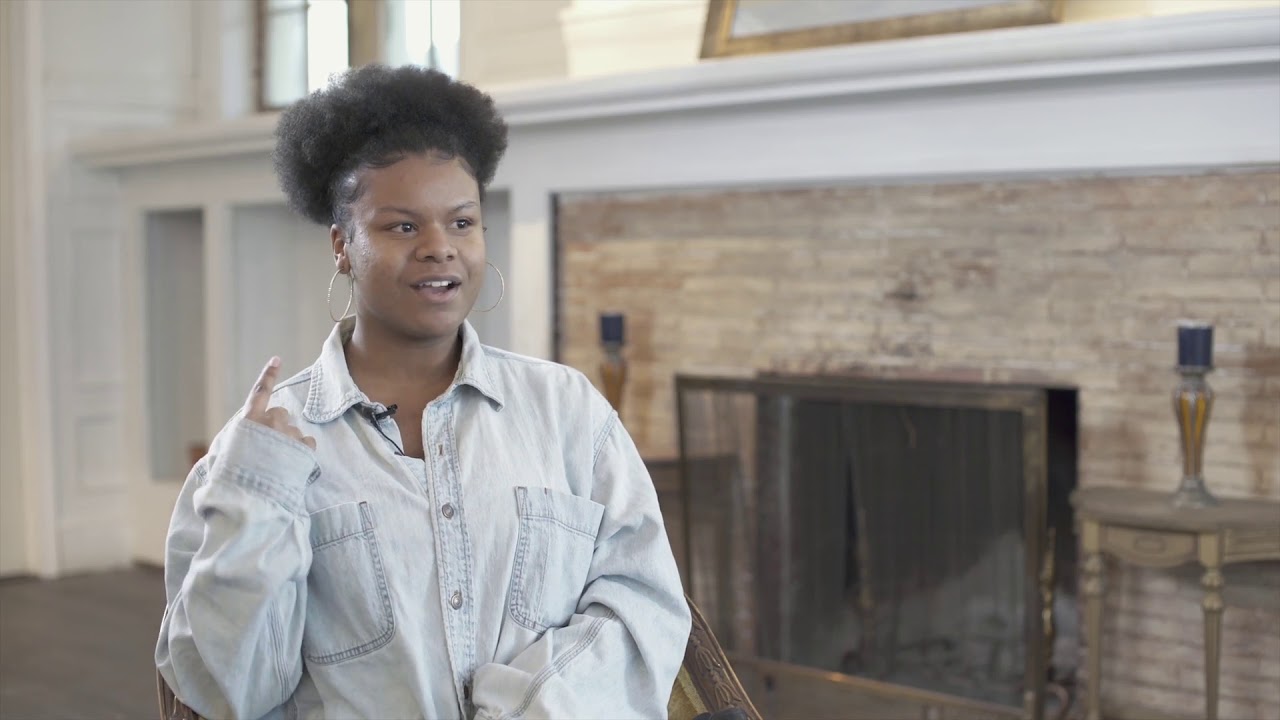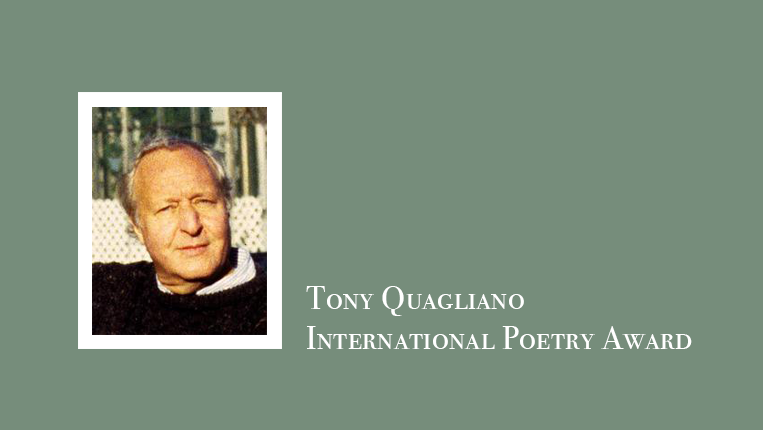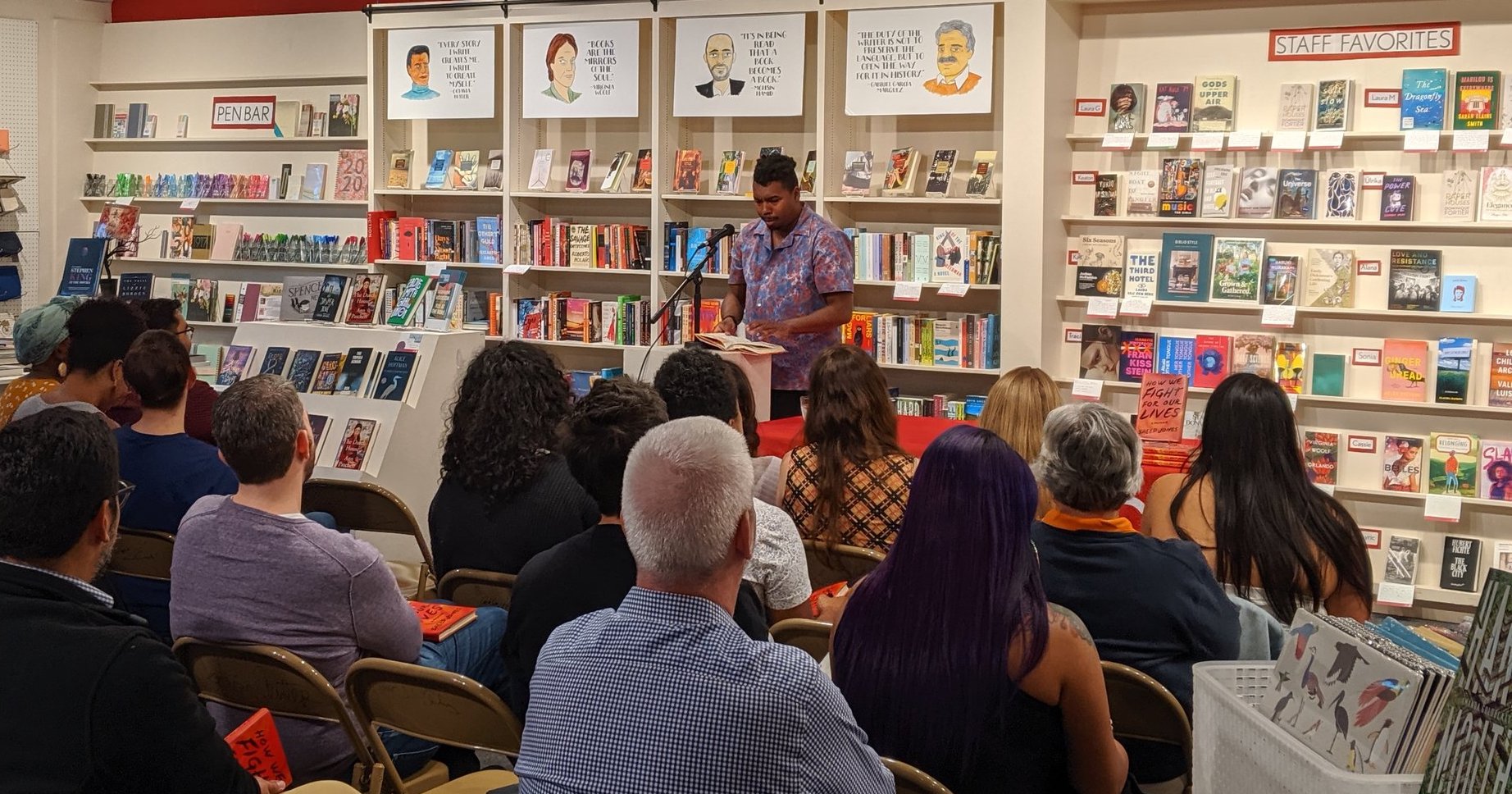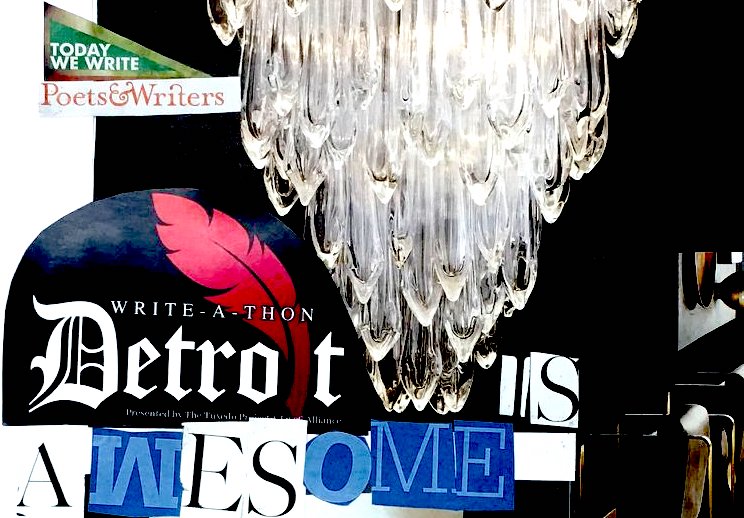Detroit Youth Poet Laureate
In 2016, Detroit became part of the National Youth Poet Laureate program, a joint initiative of Urban Word NYC and the InsideOut Literary Arts, Penmanship Books, the Academy of American Poets, Poetry Society of America, and Cave Canem. With over forty cities participating, the program now honors one youth poet laureate to be named the National Youth Poet Laureate. Each poet must submit writing and a community engagement idea for an opportunity to be chosen by a panel of esteemed judges, which has included former U.S. poet laureate Juan Felipe Herrera and National Book Award winner Elizabeth Acevedo.
For the 2018 term, Detroit named Imani Nichele as our city’s youth poet laureate. Since spring of 2018, Imani has led workshops, written two books, and read and performed her work on many stages. I took a moment to speak with Imani about her development as a writer.
“My biggest writing influence has been my internal competition,” said Imani about what inspires her to keep writing. When we spoke about what her community can do to offer writers more support, Imani said, “I want the literary community to help by offering more spaces to meetup. I want to know who I can reach out to and how to find them.”
This reminded me of the work that numerous artistic organizers and I are aiming to do in order to build a more connected literary community in Detroit. It’s been motivating to begin making these connections in response to an ask for such community. Sharing information about our Readings & Workshops mini-grants and offering the Detroit Writers Circle workshops are just a couple ways we are aiming to address this need.
When I asked Imani what she thought her work would look like in twenty years, she wisely responded, “It’s impossible for me to know what my art will look like in twenty years—I don’t know who that woman is yet.”
I am excited about the seeds being planted that will blossom in the near and distant future. Imani has recently passed the torch to the 2019 Detroit Youth Poet Laureate, Mahalia Hill, who is continuing to forge this path for young Detroiters.
Imani Nichele, the 2018 Detroit Youth Poet Laureate. Justin Rogers is the literary outreach coordinator for Poets & Writers in Detroit. Contact him at Detroit@pw.org or on Twitter, @Detroitpworg.








